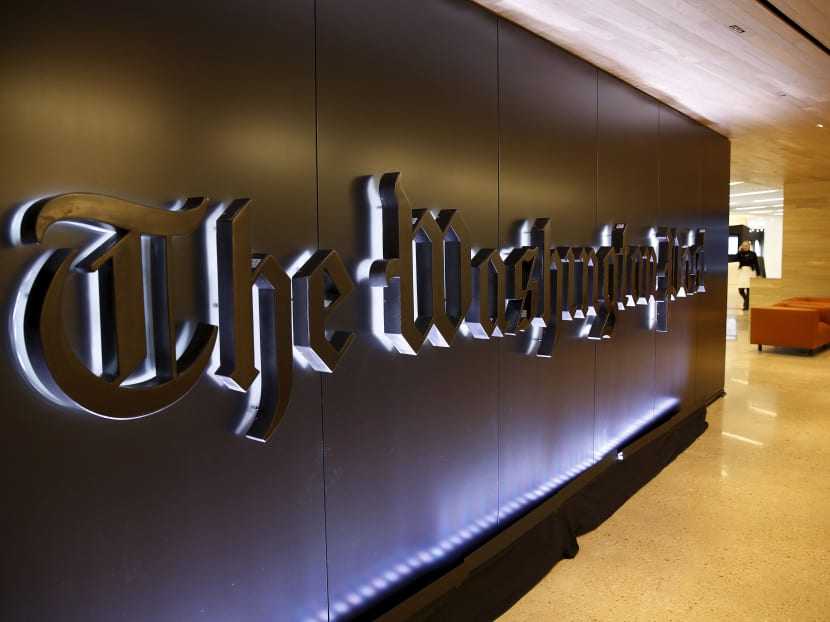In letter to Washington Post, Govt refutes Pofma criticism, saying it ‘has not suppressed anything’
SINGAPORE — The Singapore Government has written a letter to the Washington Post to challenge an article it published on Singapore's new fake-news law, which the paper said had a “chilling effect” on freedom of expression and amounted to “censorship”.

The Singapore Government has written a letter to the Washington Post to challenge various assertions made in an article it published on Singapore's fake-news law.
SINGAPORE — The Singapore Government has written a letter to the Washington Post to challenge an article it published on Singapore's new fake-news law, which the paper said had a “chilling effect” on freedom of expression and amounted to “censorship”.
“Censorship entails banning or suppressing offending material. But the Government has not banned or suppressed anything. It has only required Facebook to append to the offending post a link to a factual correction. The original post remains intact,” said the letter dated Dec 7, written by Singapore’s US Ambassador Ashok Kumar Mirpuri.
“Readers can read it together with the Government’s response, and decide for themselves which tells the truth. This can no more have ‘a chilling effect on online free expression’ than your publishing this letter can stun The Washington Post into silence,” he added in the letter.
The Dec 2 Post article, titled “Facebook issues disclaimer demanded by Singapore Government”, described the way the Government had ordered Facebook under the Protection from Online Falsehoods and Manipulation Act (Pofma) on Nov 29 to run a correction with a States Times Review Facebook post that it said contained several falsehoods.
The newspaper also quoted international rights group Human Rights Watch (HRW) deputy director Phil Robertson, who said that it was “ill-advised” for US tech firms to establish a presence in Singapore, as the Government could “use that against them”.
“Singapore's law is designed specifically to put internet companies like Facebook in a headlock to comply with these rights abusing edicts,” Mr Robertson was quoted as saying. "With huge, onerous fines and the possibility of even prison time, it's going to be hard for any company to not comply.”
Mr Mirpuri’s letter included an invitation for Mr Robertson to debate the topic with a Singapore minister at any university forum in Singapore, adding that “the proceedings can be live-streamed on Facebook”.
The Dec 2 Washington Post article has been updated since the date of original publication to include excerpts from Mr Mirpuri's letter.
The ambassador’s letter noted that in 2017, HRW issued a report accusing the Singapore Government of suppressing freedom of expression. The Government had invited HRW to appear before a parliamentary committee to provide evidence to back its claims.
“HRW initially accepted, but when told the parliamentarians would have questions on the report too, said that the dates were not suitable, despite being offered eight alternative dates plus a video-conferencing option,” said the Government in the letter.
The directive for Facebook to carry the correction came after the States Times Review was ordered by the Government on Nov 28 to correct its Facebook post but failed to comply.
The post alleged that a “whistleblower who exposed a People’s Action Party (PAP) candidate’s Christian affiliations” had been arrested and that the owner of the NUSSU – NUS Students United Facebook page, which published the claims about the PAP candidate, was under police investigation.
The authorities had said on the same day that the claims are “false and baseless” stating: “No one has been arrested or charged arising from the NSU post.”
The letter to the Washington Post added that Singapore, being an English speaking, multi-racial and multi-religious society that is open to the world, is especially vulnerable to the threat of online falsehoods.
“Your paper, like many others, has called out tech companies for publishing and spreading falsehoods online, and warned of the threat this poses to democracy,” the letter added.
“Pofma seeks to restore balance to the debate, by requiring tech companies to carry clarifications to reach the same target audience as the false statements.”











